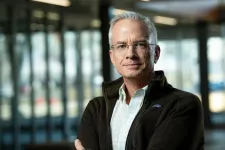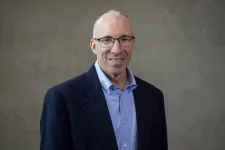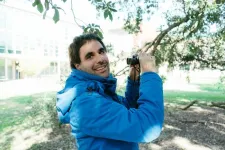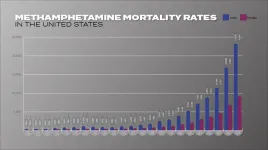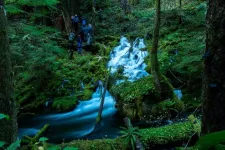(Press-News.org) Biology researchers in the College of Sciences and UCF Coastal have received two awards from the National Oceanic and Atmospheric Administration (NOAA) totaling more than $2.3 million.
A new $1.1 million award to UCF from NOAA Sea Grant as part of the Marine Debris Challenge Competition will fund joint research between UCF’s CEELAB and Aquatic Biogeochemistry Laboratory’s research on plastic-free restored habitats in coastal shorelines and oyster reefs. UCF’s work, in partnership with Texas A&M, and University of Texas Marine Science Institute was selected as one of 11 projects across Alabama, California, Florida, Illinois, Massachusetts, New York, North Carolina, Oregon, Texas and Wisconsin. Combined, the team received $2.27 million dollars for the collaborative project.
“We were delighted to receive funding from NOAA’s Marine Debris Challenge Competition — a highly competitive process,” says Pegasus Professor of Biology Linda Walters, who leads Coastal and Estuarine Ecology Lab (CEELAB). “Our take on this was to focus on coastal restoration. We are evaluating novel non-plastic materials used for oyster reef restoration to ensure that there aren’t negative impacts in surrounding marine habitats, including communities that live in the sediment or to larger animals, such as crabs, which call the oyster reefs home.”
Walters says that marine debris — which includes microplastics and nanoplastics — is affecting every habitat around the globe.
“Even though we cannot see them, marine invertebrates and vertebrates consume them, which can negatively impact the animal,” Walters says. “If these animals are then consumed by humans, the plastic enters our digestive tracts. Other microscopic plastic particles are light enough to enter the atmosphere and move with the wind. Recent research is documenting that these particles can end up trapped in our lungs.”
UCF is uniquely poised to conduct this research because of our substantial history of oyster reef restoration within Mosquito Lagoon and our local knowledge of the ecosystem, says Lisa Chambers, associate professor and principal investigator (PI) of the Aquatic Biogeochemistry Laboratory, a co-PI on the NOAA Marine Debris award.
“This research is timely and important because the desire to stop using plastics in coastal restoration has opened a floodgate of new and novel restoration materials,” Chambers says. “This funding supports the continued study of alternative, non-plastic materials for use in coastal restoration. We need to know how materials affect the microbes and natural chemical cycles in the coastal ecosystem and long-terms impacts of restoration efforts.”
CEELAB focuses on a wide variety of problems impacting Florida’s coastal waters, in particular, the Indian River Lagoon system. The group, led by Walters and Melinda Donnelly, a research assistant professor in biology, has a long history of ecosystem restoration efforts that focus on restoration — including oysters, marsh grass, mangroves and seagrass.
As one of the longest running academically based coastal restoration programs in the U.S., CEELAB works with UCF faculty, graduate students, undergraduate researchers, postdoctoral fellows, field technicians, numerous community partners and volunteers to restore Florida’s Indian River Lagoon. Current partners include the Marine Discovery Center in New Smyrna Beach, Florida, Coastal Conservation Association, Canaveral National Seashore, and Florida Fish and Wildlife Conservation Commission. The combined efforts of UCF and its partners highlight ever-changing best practices in ecosystem restoration and provide a ripe opportunity for research and innovation.
“It’s unique to have a long-term restoration project led by a university laboratory. We started community-based oyster reef restoration in 2007, living shoreline stabilization in 2012, and seagrass restoration in 2024,” Walters says. “We have created a ‘habitat mosaic’ where all these species work together to make the environment better. We are finding lots of areas have degraded, whether through storms or human impact. It’s important to find solutions that bring the natural environment back.”
NOAA also provides large, transformative awards to create communities of practice in coastal restoration and UCF (co-PIs Walters and Donnelly) is receiving $1.2 million for restoration efforts as part of the NOAA funding of $9.4 million to the Indian River Lagoon’s National Estuary Program. NOAA is funding 32 projects nationwide.
“Restoration efforts require funding and are vital for our communities — we are grateful for the continued support of NOAA and the National Estuary Program for our coastal restoration work in Mosquito Lagoon,” Walters says.
CEELAB’s work connects UCF biology students with firsthand experience, putting classroom learning into practice.
“Through this grant, we’re providing opportunities for many students to gain field experience — from planting mangroves to conducting innovative ecosystem research — that has the mutual benefit of restoring vital habitats in Florida,” Walters says. “A lot of the graduate students whose work is funded through awards like this go on to become our coastal restoration leaders at the state or federal level.”
More than 70,000 volunteers — including UCF students, faculty, staff and community members — have contributed to the CEELAB’s coastal restoration work since 2007.
“We are all working together to restore a truly magical place — a place that’s home to birds, fish, mangrove islands, manatees, dolphins and everything that makes Florida special,” Walters says.
END
UCF biology researchers win awards from NOAA to support critical coastal work
The College of Sciences and UCF Coastal receive $2.3 million for innovative coastal ecosystem research, including solutions to marine debris.
2025-01-13
ELSE PRESS RELEASES FROM THIS DATE:
Geochemist Kevin Rosso appointed a Battelle Fellow
2025-01-13
RICHLAND, Wash.— Geochemist Kevin Rosso, a senior scientific leader at the Department of Energy’s Pacific Northwest National Laboratory, has been named a Battelle Fellow, the highest recognition at PNNL for leadership and accomplishment in science. He joins six other current Battelle Fellows at PNNL in an honor that less than 0.5% of PNNL scientists achieve during their careers.
Rosso is internationally known for his fundamental research on how energy flows among minerals, solutions and microorganisms. These complex processes center on the key role that interfaces—which are shared boundaries—play in controlling ...
NIH-funded study finds cases of ME/CFS increase following SARS-CoV-2
2025-01-13
What: New findings from the National Institutes of Health’s (NIH) Researching COVID to Enhance Recovery (RECOVER) Initiative suggest that infection with SARS-CoV-2, the virus that causes COVID-19, may be associated with an increase in the number of myalgic encephalomyelitis/chronic fatigue syndrome (ME/CFS) cases. According to the results, 4.5% post-COVID-19 participants met ME/CFS diagnostic criteria, compared to 0.6% participants that had not been infected by SARS-CoV-2 virus. RECOVER is NIH’s national program to understand, diagnose, prevent, and treat Long COVID.
The research team, led by Suzanne D. Vernon, Ph.D., from the Bateman Horne Center in Salt Lake City, ...
Biophotovoltaics: A step forward in sustainable energy technology
2025-01-13
In a groundbreaking study published in Environmental Science and Ecotechnology, researchers have advanced our understanding of biophotovoltaic (BPV) systems—innovative devices that merge photosynthetic microbes with electrochemical systems to convert sunlight into electricity. Using the cyanobacterium Synechocystis sp. PCC 6803, the study provides critical insights into the molecular mechanisms driving this green energy technology.
Central to BPV systems is the process of extracellular electron transfer (EET), where electrons generated during photosynthesis are harvested by an electrode via mediators such as ferricyanide. The research reveals that EET ...
Experimental blood test for pancreatic cancer undergoing clinical development and evaluation
2025-01-13
GRAND RAPIDS, Mich. (Jan. 13, 2025) — An experimental blood test for pancreatic cancer that was developed by Van Andel Institute and University of Pittsburgh scientists is being evaluated by a commercial laboratory, an important milestone toward making the test available for patients.
A recent double-blinded, peer-reviewed analysis published in Cancer Letters revealed that the experimental test correctly identified 71% of pancreatic cancer samples in the lab compared to only 44% correctly identified by the current gold-standard test. Teams led by ...
Polygamy is (not) for the birds
2025-01-13
Researchers at Rice University have uncovered new insights into the evolution of bird behavior, revealing why certain mating systems persist while others disappear over time. In a recent paper published in the journal Evolution, Rafael S. Marcondes and Nicolette Douvas reveal that lekking — a mating system where males display for females without forming lasting bonds — is an evolutionarily stable strategy. In contrast, resource-defense polygamy, where one sex — usually but ...
Hubble reveals surprising spiral shape of galaxy hosting young jet
2025-01-13
The night sky has always played a crucial role in navigation, from early ocean crossings to modern GPS. Besides stars, the United States Navy uses quasars as beacons. Quasars are distant galaxies with supermassive black holes, surrounded by brilliantly hot disks of swirling gas that can blast off jets of material. Following up on the groundbreaking 2020 discovery of newborn jets in a number of quasars, aspiring naval officer Olivia Achenbach of the United States Naval Academy has used NASA’s Hubble Space Telescope to reveal surprising properties of one of them, quasar J0742+2704.
"The biggest surprise was seeing the distinct ...
Study: US methamphetamine mortality 61 times higher in '21 than 1999
2025-01-13
OXFORD, Miss. – Methamphetamine deaths in the U.S. rose 61-fold from 1999 to 2021, according to a new study, highlighting a growing crisis in addiction and public health.
Looking at the gender breakdown of these deaths could improve harm-reduction efforts and outcomes for patients suffering from addiction, said Andrew Yockey, University of Mississippi assistant professor of public health and co-author of the study.
“We know that, across the board, men are more likely to use every substance except tranquilizers than women, and we found that to be true here,” Yockey said. “Especially if we're thinking about methamphetamine, ...
Atop the Oregon Cascades, UO team finds a huge buried aquifer
2025-01-13
THIS PUBLICATION IS EMBARGOED UNTIL 3 PM EASTERN TIME ON JANUARY 13, 2025.
Oregon’s Cascade Range mountains might not hold gold, but they store another precious resource in abundance: water.
Scientists from the University of Oregon and their partners have mapped the amount of water stored beneath volcanic rocks at the crest of the central Oregon Cascades and found an aquifer many times larger than previously estimated — at least 81 cubic kilometers.
That’s almost three times the maximum capacity of Lake Mead, ...
Bay Area community leader champions CPR education and heart health on national platform
2025-01-13
DALLAS, Jan. 13, 2025 — Corey Bentley, an American Heart Association local volunteer and marketing professional in the San Francisco Bay Area, is the Association’s 2024 National Leaders of Impact™ Winner. In the fall of 2024, more than 300 local leaders in 60 communities volunteered to improve heart health while raising funds to fuel the lifesaving mission of the Association, through its nationwide Leaders of Impact campaign. The head-to-head competition doesn’t just focus on raising critical funds. It also supports access to equitable health in local communities given that health inequities related to uncontrolled high blood pressure rates, tobacco ...
Aston University and Birmingham Children’s Hospital study shows diagnosis and treatment of preschool wheeze needs improvement
2025-01-13
Preschool wheeze is a common condition in children under six, affecting 30-40% of children
Aston University’s Dr Gemma Heath led a study into parents’ experiences of managing preschool wheeze, including confusion and psychological distress
They identified problems with inconsistent terminology and uncertainty around diagnosis and say a unified approach is needed.
A study led by Aston University’s Dr Gemma Heath and Dr Prasad Nagakumar from Birmingham Children’s Hospital, has shown that treatment and diagnosis for preschool wheeze needs more effective ...
LAST 30 PRESS RELEASES:
Children born with upper limb difference show the incredible adaptability of the young brain
How bacteria can reclaim lost energy, nutrients, and clean water from wastewater
Fast-paced lives demand faster vision: ecology shapes how “quickly” animals see time
Global warming and heat stress risk close in on the Tour de France
New technology reveals hidden DNA scaffolding built before life ‘switches on’
New study reveals early healthy eating shapes lifelong brain health
Trashing cancer’s ‘undruggable’ proteins
Industrial research labs were invented in Europe but made the U.S. a tech superpower
Enzymes work as Maxwell's demon by using memory stored as motion
Methane’s missing emissions: The underestimated impact of small sources
Beating cancer by eating cancer
How sleep disruption impairs social memory: Oxytocin circuits reveal mechanisms and therapeutic opportunities
Natural compound from pomegranate leaves disrupts disease-causing amyloid
A depression treatment that once took eight weeks may work just as well in one
New study calls for personalized, tiered approach to postpartum care
The hidden breath of cities: Why we need to look closer at public fountains
Rewetting peatlands could unlock more effective carbon removal using biochar
Microplastics discovered in prostate tumors
ACES marks 150 years of the Morrow Plots, our nation's oldest research field
Physicists open door to future, hyper-efficient ‘orbitronic’ devices
$80 million supports research into exceptional longevity
Why the planet doesn’t dry out together: scientists solve a global climate puzzle
Global greening: The Earth’s green wave is shifting
You don't need to be very altruistic to stop an epidemic
Signs on Stone Age objects: Precursor to written language dates back 40,000 years
MIT study reveals climatic fingerprints of wildfires and volcanic eruptions
A shift from the sandlot to the travel team for youth sports
Hair-width LEDs could replace lasers
The hidden infections that refuse to go away: how household practices can stop deadly diseases
Ochsner MD Anderson uses groundbreaking TIL therapy to treat advanced melanoma in adults
[Press-News.org] UCF biology researchers win awards from NOAA to support critical coastal workThe College of Sciences and UCF Coastal receive $2.3 million for innovative coastal ecosystem research, including solutions to marine debris.
